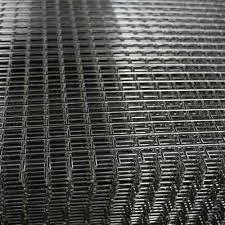-
+86 15030157877
-
sales@galvanizedmetalmesh.com
Jan . 01, 2025 14:31 Back to list
Fencing Mesh Manufacturing Facilities and Their Key Features
Exploring the Fencing Mesh Industry Factories and Innovations
Fencing mesh is an essential component in various applications, from agricultural to industrial and residential use. As the demand for secure and durable fencing solutions grows, the industry has seen a significant rise in the number of factories specializing in the production of fencing mesh. This article delves into the world of fencing mesh factories, exploring their importance, production processes, and innovations.
The Importance of Fencing Mesh
Fencing mesh serves numerous purposes across different sectors. In agriculture, it is used to protect crops from animals and to secure livestock within designated areas. In residential settings, homeowners utilize fencing mesh to ensure privacy and enhance security. Additionally, industries rely on fencing mesh for perimeter security, safety barriers, and even in the construction of temporary enclosures.
The versatility of fencing mesh has made it a sought-after material, prompting factories to increase their output. As urbanization and agricultural expansion continue, the fencing mesh industry plays a crucial role in ensuring safety and security across various landscapes.
Production Processes in Fencing Mesh Factories
Fencing mesh factories utilize sophisticated manufacturing processes to produce high-quality products. The primary materials used include wire made from different metals, including zinc-coated steel, stainless steel, and PVC-coated wires. The choice of material often depends on the intended application and required durability.
1. Wire Drawing The production process starts with wire drawing, where large coils of metal are drawn through a series of dies to create thinner wires. The diameter of the wire can vary, influencing the overall strength and flexibility of the final mesh.
2. Weaving or Welding Once the wire is prepared, it undergoes weaving or welding. In the weaving method, wires are interlaced to create the mesh pattern, while the welding process involves joining wires at their intersections using electric current. Welding typically produces a stronger mesh, ideal for security applications.
fencing mesh factories

3. Coating and Finishing After the form of the mesh is established, the next phase is coating. Depending on the requirements, the mesh can be galvanized to prevent rust, or coated with PVC for additional durability and aesthetic appeal. This coating process not only enhances the lifespan of the fencing mesh but also improves its appearance.
4. Quality Control Most factories implement stringent quality control measures throughout the production process. This includes testing the tensile strength of the wire, assessing the uniformity of the mesh, and ensuring that the coatings meet industry standards. High-quality fencing mesh is crucial for safety, especially in high-security areas.
5. Packaging and Distribution Once the fencing mesh has passed quality inspections, it is packaged and prepared for distribution. Factories often export their products globally, meeting the needs of various markets and environments.
Innovations in the Fencing Mesh Industry
As with many industries, innovation plays a vital role in the evolution of fencing mesh production. Recent advancements have focused on improving material properties and manufacturing techniques to enhance durability and reduce production costs. For instance, the development of high-tensile wires has led to stronger and lighter fencing solutions.
Moreover, the introduction of automated machinery in factories has increased efficiency, allowing for quicker production cycles and reduced labor costs. These innovations not only ensure a steady supply of fencing mesh but also cater to custom requirements, providing tailored solutions to clients.
Conclusion
Fencing mesh factories are integral to meeting the expanding needs for security and protection across various industries. With advanced production techniques and ongoing innovations, these factories are well-positioned to provide high-quality fencing solutions that cater to the diverse requirements of their customers. As the industry continues to evolve, the importance of fencing mesh as a reliable and essential material will undoubtedly remain significant in our increasingly security-conscious world.
-
Premium Eco-Friendly Roof Tiles | Affordable & Durable
NewsJul.31,2025
-
Premium Roof Tiles for Durable & Stylish Roofing Solutions
NewsJul.30,2025
-
High-Quality Roof Tiles for Durable & Stylish Roofing Solutions
NewsJul.29,2025
-
High Quality Square Wire Mesh Manufacturer & Supplier for Wholesale
NewsJul.29,2025
-
Premium Roof Tiles for Durable & Stylish Roofing Solutions
NewsJul.29,2025
-
Hexagonal Gabion for Slope Protection & Retaining Walls | Durable Wire Mesh
NewsJul.29,2025



